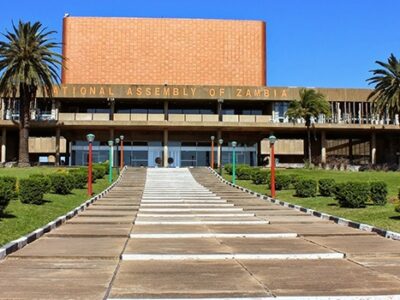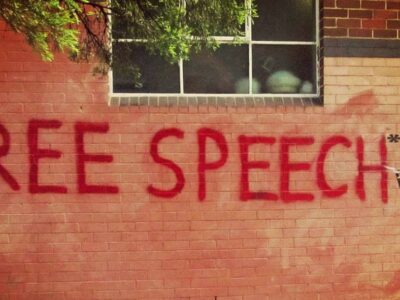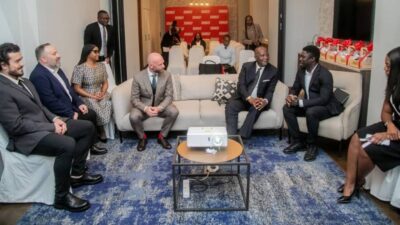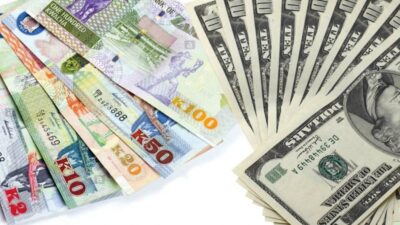Zambia’s democratic journey began in 1990 with the transition from a single-party system under the United National Independence Party (UNIP) to a multiparty system introduced by the Movement for Multiparty Democracy (MMD).
Despite the progress made since 1991, concerns about the government’s tolerance for criticism and opposition have emerged, particularly from stakeholders in opposition.
The previous Patriotic Front (PF) government was criticized for its heavy-handed approach to dealing with opposition leaders, civil society members and online dissent.
Under the PF administration, opposition figures and civil society were often targeted, leading to accusations of political persecution.
Following the election of Hakainde Hichilema as President in 2021, Zambia’s political climate has undergone significant changes.
Before his election, Hichilema’s house and the UPND party Secretariat were raided multiple times, resulting in the arrest of 10 party cadres.
Former UPND Secretary-General, Stephen Katuka, then had confirmed that the raids were part of the PF government’s persecution and abuse of the UPND.
“It is unclear to us on what grounds this assault was conducted. This office is a regular party campaign centre, coordinating some of our outreach efforts to new and existing members in Lusaka and beyond. What was the suspicion and where is the evidence to suggest that there was any legitimate reason for the offensive?” Katuka said.
The shift in leadership brought new hope for improved governance, economic growth, and increased safe spaces for free speech.
However, challenges persist. The country faced an economic crisis, high debt levels, a declining investment climate, and continued police harassment of President Hichilema’s opponents, including former President Edgar Lungu and leaders from the Socialist Party.
The search for safe spaces for speech remained a pressing issue. Recently, Zambia Police in Kabwe disrupted a courtesy call by former President Lungu with Catholic Bishop Clement Mulenga.
A police officer, acting on instructions from the Inspector General in Lusaka, ordered Lungu to vacate the premises, claiming the meeting was unauthorized.
“You are not supposed to have a meeting you know our security system,” the policeman said.
“As the police, you need to inform us when someone is coming. I am saying that you are not supposed to have a meeting because it’s clear that you have a meeting here.”
Lungu later claimed he was effectively under house arrest, stating in an interview with BBC Newsday,
“I cannot move out of my house without being accosted and challenged by police, who drive me back home. I’m facing the consequences of returning to politics and I’m ready for it.”
Civil society organizations, including ActionAid Zambia, have highlighted what they describe as a shrinking of political and civic spaces.
Linda Kasonde, representing the CSOs, said, “On October 18, 2023, a day when the nation was supposed to be fasting, praying, reflecting and reconciling, law enforcement agents in Lusaka thwarted a planned protest against the rising cost of living.”
Several opposition leaders, such as Sean Tembo of Patriots for Economic Progress and Dr. Fred M’membe of the Socialist Party, have faced interrogations and sedition charges, reflecting ongoing tensions.
Prior to President Hichilema’s election, Permanent Secretary of Art at the Ministry of Youth, Sports, and Chama Fumba commented, “The closure of civic spaces in Zambia is alarming. We need safe spaces for citizens to express themselves freely.”
Alliance for Community Action Executive Director Laura Miti supported this view, stating, “The government must ensure that citizens have access to safe spaces for dialogue and dissent.”
Read More: Zambia’s media landscape fragmented by rise of online platforms, by Hannet Mwimbe
Journalist Derby Chilumba also voiced concerns about the online space, saying, “The online space is increasingly unsafe for journalists. We need platforms that promote free expression.”
Academician Dr. Sishuwa Sishuwa added that Zambia’s academic spaces were shrinking, emphasizing, “The university should be a safe space for intellectual discourse, not political intimidation.”
In response to these concerns, the government launched a legal note on freedom of expression, reaffirming its position that Zambia’s democratic space is not shrinking.
Ministry of Information and Media Permanent Secretary, Thabo Kawana, stated, “We have created an environment where human rights are respected and protected for all and this document provided a platform for knowledge exchange among all concerned parties.”
The search for safe spaces for speech remained crucial.
Initiatives like Open Spaces and the work of organizations such as ActionAid Zambia are essential in promoting democratic values and human rights.
WARNING! All rights reserved. This material, and other digital content on this website, may not be reproduced, published, broadcast, rewritten or redistributed in whole or in part without prior express permission from ZAMBIA MONITOR.













Comments